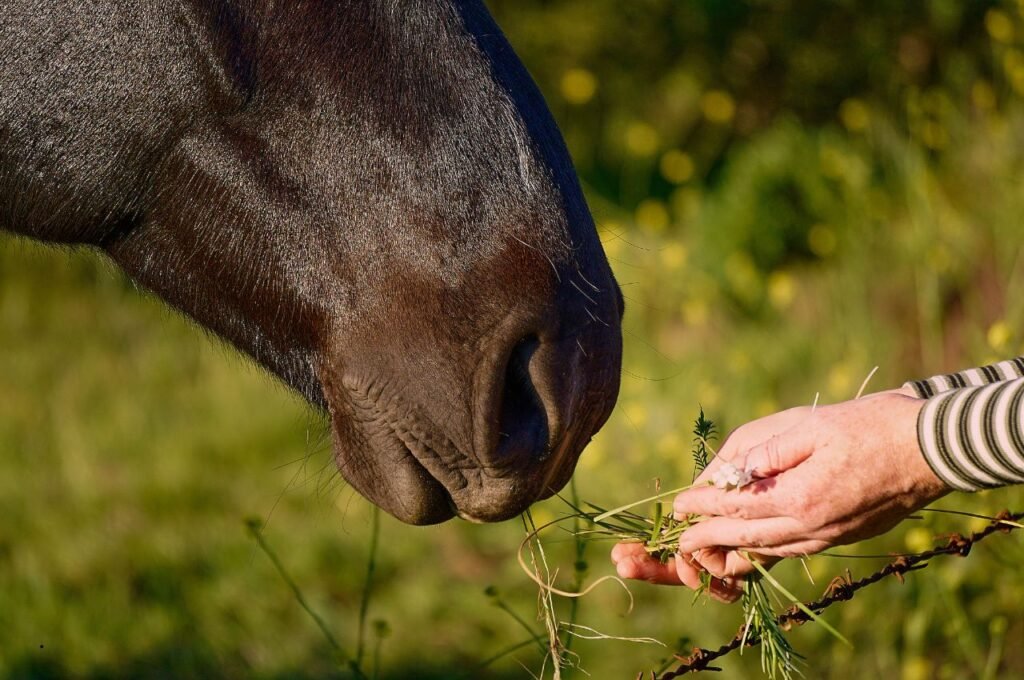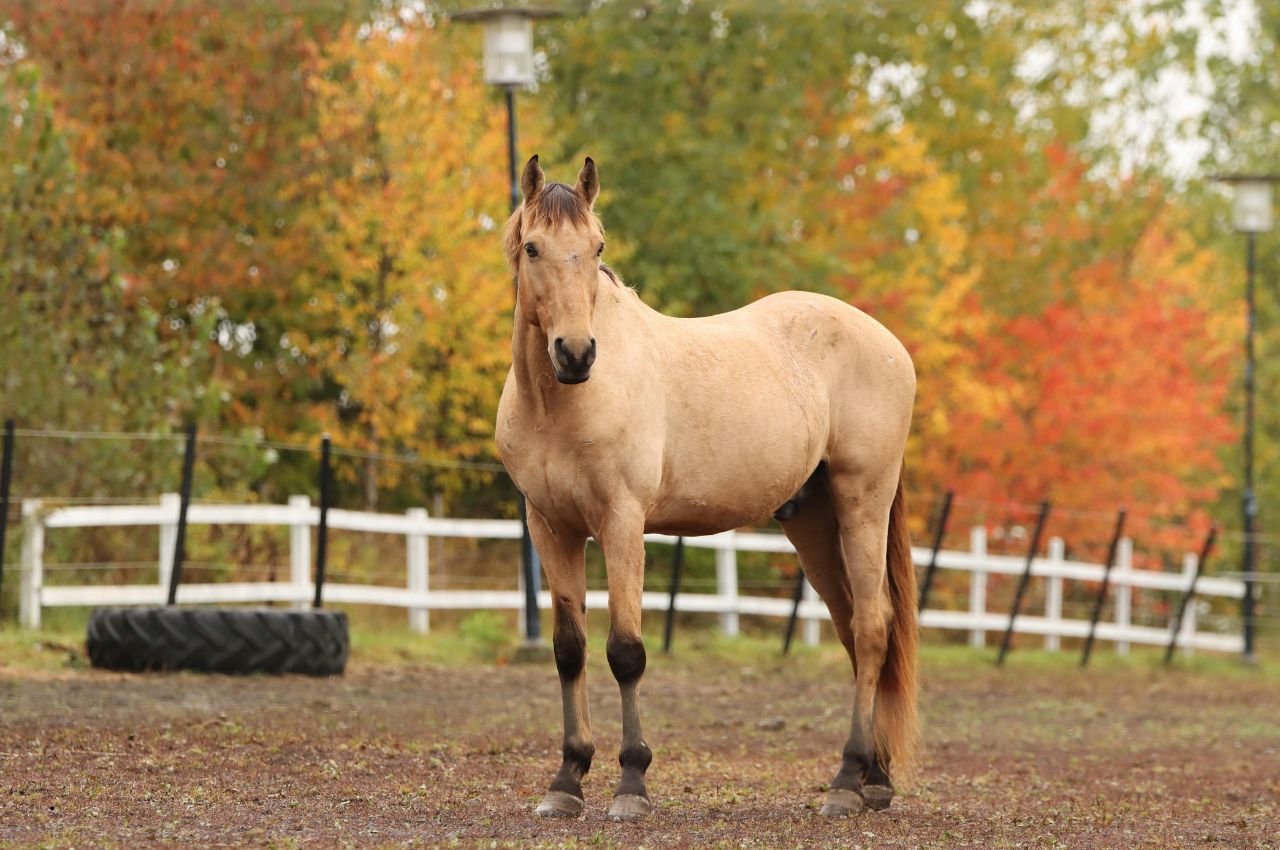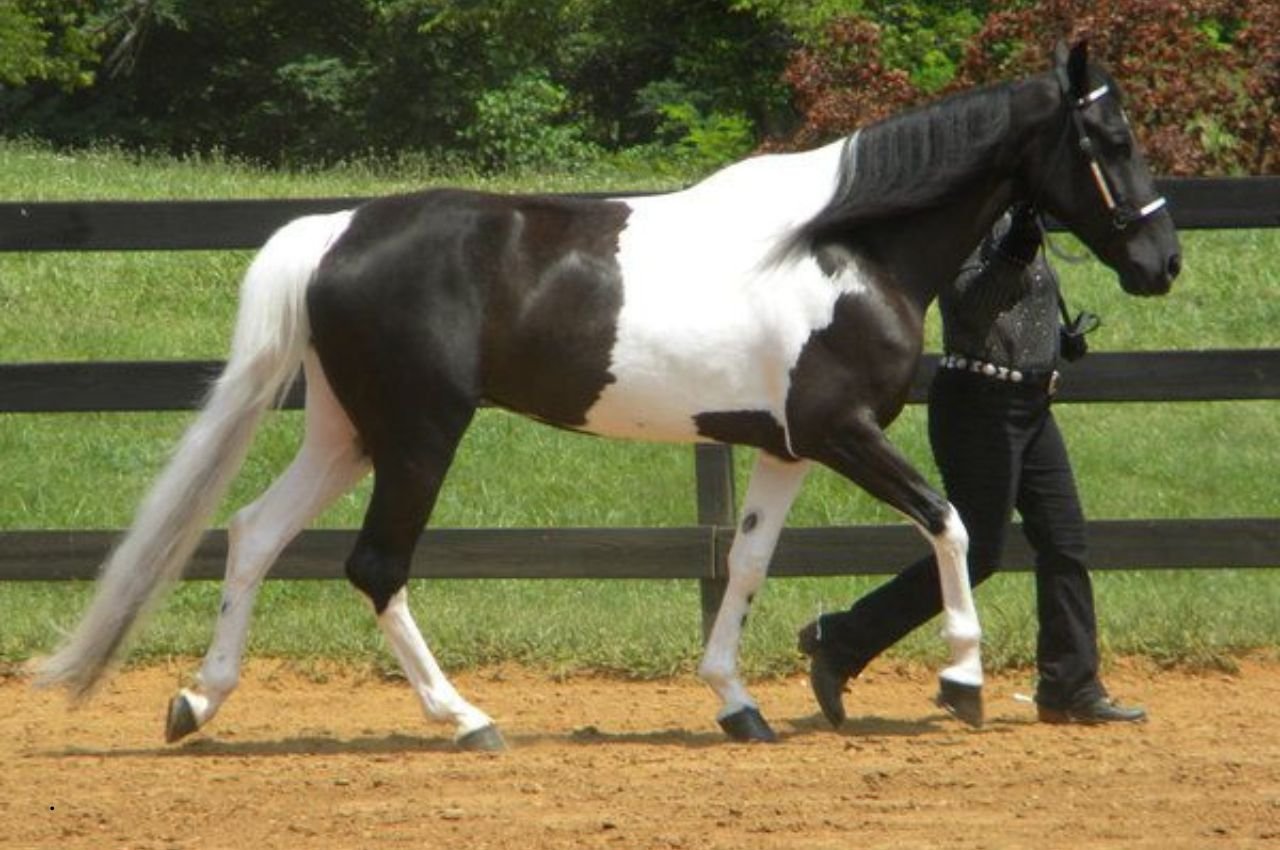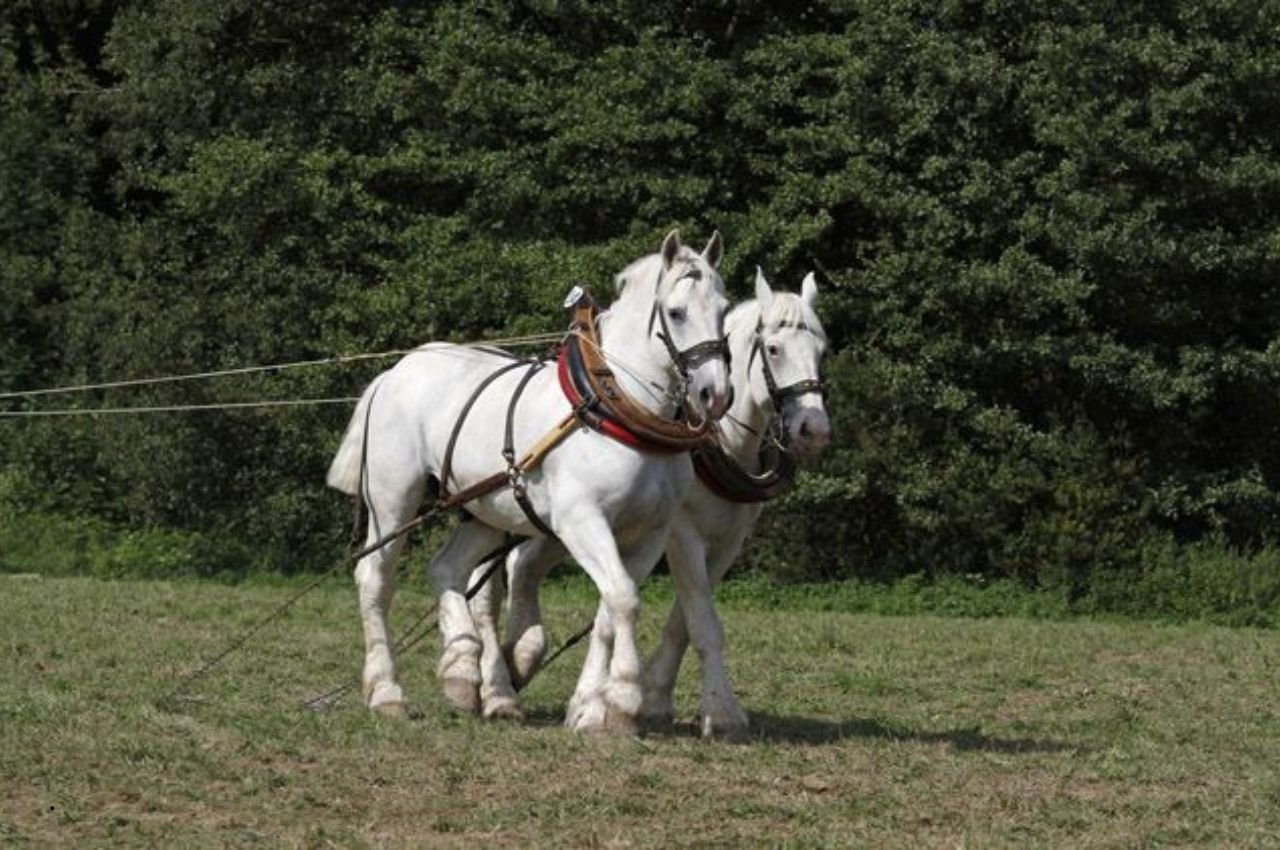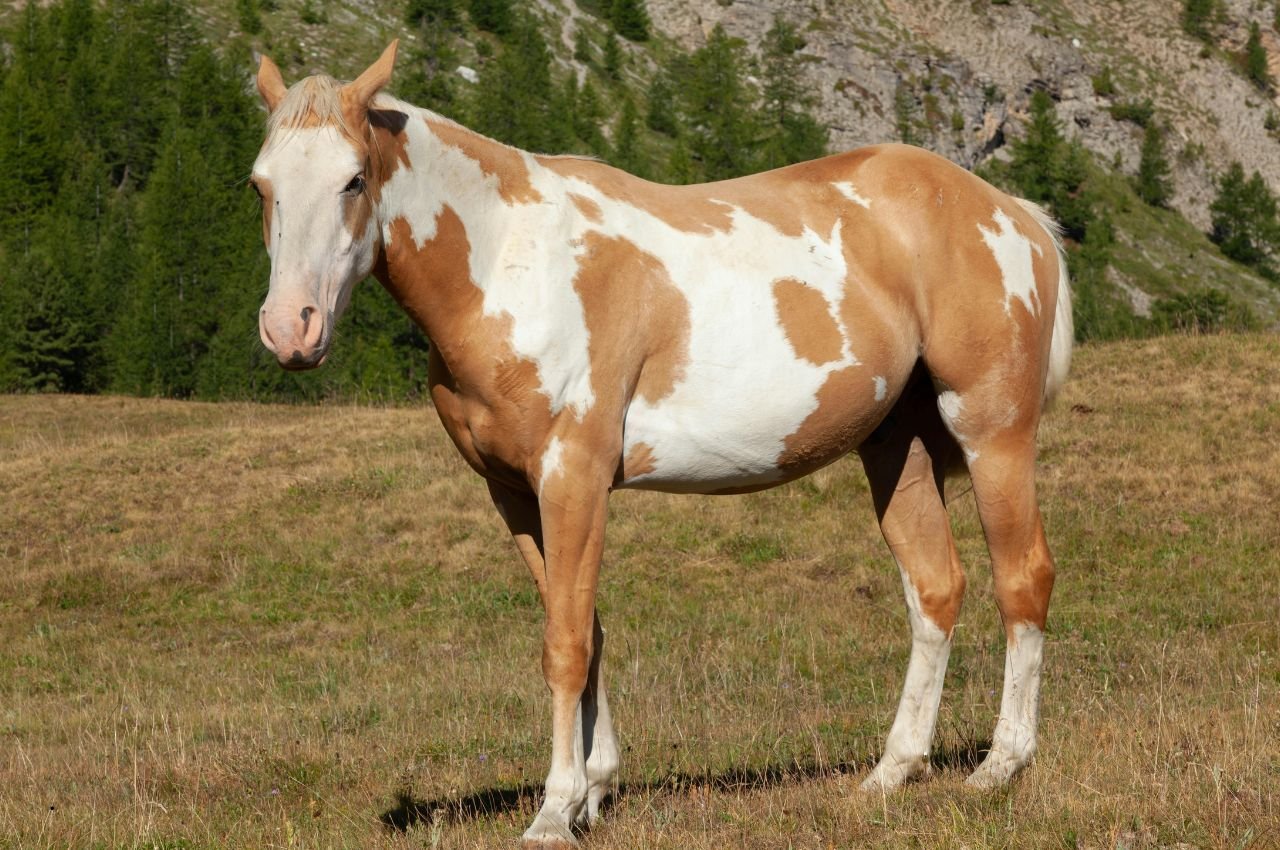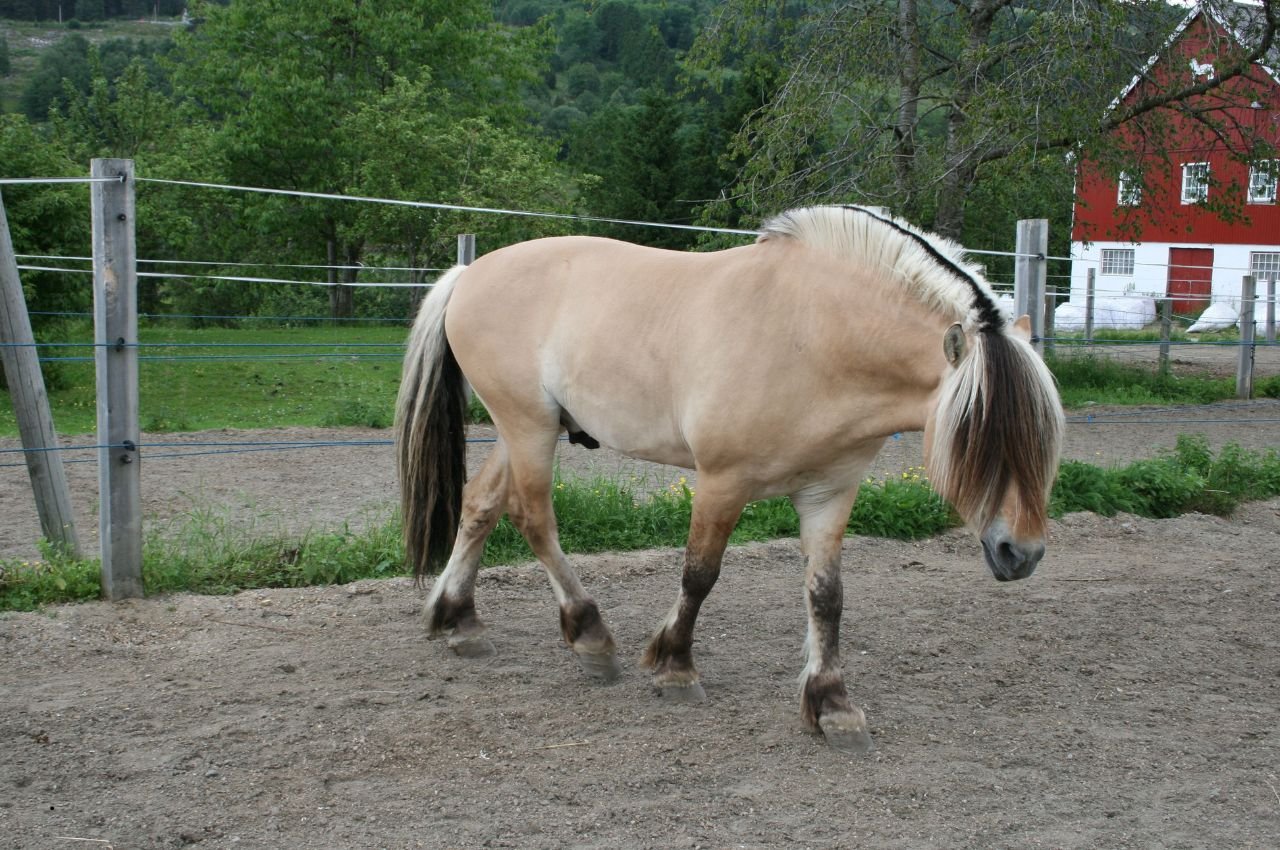Alfalfa is a popular and highly valued forage in equine diets. Known for its rich nutrient content and palatability, it’s often used to support horses with higher energy or protein needs. But like any good thing, alfalfa should be fed in moderation. Overfeeding this nutrient-dense forage can lead to health issues, making portion control an essential part of your horse’s feeding routine. Whether you’re feeding alfalfa as hay, pellets, or cubes, understanding how much is too much can make the difference between a balanced diet and potential overindulgence.
The Nutritional Profile of Alfalfa
Alfalfa’s appeal lies in its exceptional nutritional value. Unlike grass hays, alfalfa is a legume hay that’s higher in protein, energy, and calcium. Here’s a closer look at why it’s such a popular choice for horse owners:
1. High Protein Content
Alfalfa is rich in protein, which is essential for muscle development, tissue repair, and growth. This makes it an excellent choice for growing foals, lactating mares, and performance horses with high activity levels.
2. Energy Dense
Compared to typical grass hays, alfalfa contains more calories per pound. This makes it highly beneficial for underweight horses or horses with increased caloric demands, such as those in training or recovering from illness.
3. Rich in Calcium
Alfalfa provides significantly more calcium than grass hay, making it ideal for lactating mares and growing horses who require additional minerals for milk production or bone development.
While these benefits make alfalfa a valuable feed, its potent nutritional makeup also means it can lead to complications if overfed or if not balanced properly with other dietary components.
The Risks of Overfeeding Alfalfa
Feeding too much alfalfa isn’t just wasteful—it can negatively impact your horse’s health. Here are some of the most common risks associated with overfeeding alfalfa:
1. Excessive Weight Gain
Alfalfa’s high calorie content can quickly lead to weight gain, particularly in horses with limited activity levels or those prone to being easy-keepers. Extra weight isn’t just a cosmetic issue—it can contribute to joint stress, lameness, and other metabolic conditions like insulin resistance.
2. Digestive Problems
Horses have highly sensitive digestive systems, and abrupt changes or excessive intake of nutrient-dense feeds can lead to problems. Overfeeding alfalfa may increase the risk of colic or diarrhea, especially in horses that aren’t accustomed to it. Additionally, alfalfa is known for causing “hot behavior” in some horses, potentially due to its high protein or energy content.
3. Calcium-to-Phosphorus Imbalance
One of alfalfa’s strengths—its high calcium content—can also be a concern. Horses need a balanced calcium-to-phosphorus ratio (ideally between 1.5–2 parts calcium to 1 part phosphorus). Feeding excess alfalfa, without proper balance, can disrupt this ratio, leading to potential skeletal problems, especially in growing horses.
4. Not Suitable for All Health Conditions
Alfalfa is not a good option for all horses. Easy-keepers, horses with metabolic disorders, or those prone to laminitis may not tolerate its calorie or sugar content. Similarly, mature horses with low activity levels often don’t need the protein boost, and overconsumption could lead to kidney strain.
Determining the Right Amount of Alfalfa
When deciding how much alfalfa to feed, consider your horse’s specific needs. Factors like age, activity level, and existing health conditions should all play a role in your decision-making process.
1. Horses Needing Extra Support
- Performance Horses or those in heavy training may do well with alfalfa in their diet, as it provides a quick and efficient energy source.
- Broodmares and Lactating Mares require extra protein and calcium, making alfalfa a good choice for meeting their increased nutritional demands.
- Growing Foals benefit from the mix of protein and calcium in alfalfa to support proper muscle and skeletal development.
2. Easy-Keepers and Non-Working Horses
For horses that maintain weight easily, alfalfa should either be limited to small amounts daily or avoided entirely. Grass hay or other low-calorie forages may be more appropriate.
3. Older Horses or Those with Dental Issues
For senior horses or those struggling with poor dental health, soaked alfalfa pellets or cubes can be an excellent supplement, making it easier for them to chew and digest.
4. Portion Guidelines
As a general rule of thumb, horses should consume around 1.5–2.5% of their body weight in forage per day. For most horses, alfalfa should make up only a portion of that forage. For example:
- Performance horses might benefit from a ratio of 50% alfalfa and 50% grass hay.
- Easy-keepers may only need 10–20% of their forage as alfalfa to avoid overfeeding.
Always introduce alfalfa gradually and assess your horse’s response to changes in their diet.
Balancing Alfalfa with Other Forages
To create a well-rounded diet, alfalfa should be balanced with other types of hay, feeds, or supplements. Here are a few tips:
1. Mix Alfalfa with Grass Hay
Combining alfalfa with low-calorie grass hays like timothy or orchard grass helps dilute its energy and calcium content while still delivering nutritional benefits. This is particularly important for horses prone to excessive weight gain.
2. Monitor for Nutrient Imbalances
If your horse eats a significant amount of alfalfa, consider supplements or feeds to balance the calcium-to-phosphorus ratio. Commercial grain mixes often contain added phosphorus to complement diets heavy in alfalfa.
3. Use Alfalfa Strategically
Instead of making alfalfa the primary forage, consider using it as a topper, treat, or supplement. For example, feeding a small amount of alfalfa before exercise can provide an energy boost, while its natural stomach-buffering properties can help combat acid buildup in horses prone to ulcers.
4. Consult a Professional
If you’re unsure how to balance your horse’s diet, a veterinarian or equine nutritionist can provide guidance tailored to your horse’s specific needs.
The Importance of Moderation
Feeding alfalfa to your horse can offer significant benefits when done responsibly. Its protein, energy, and calcium content make it an excellent supplement for many horses, especially those with increased nutritional demands. However, moderation is the key to avoiding complications. Overfeeding alfalfa can lead to preventable health issues, from weight gain to nutrient imbalances.
By carefully determining the right amount for your horse and balancing it with other forage, you can provide a diet that supports their health and performance. When in doubt, always consult with a veterinarian or equine nutritionist to ensure you’re meeting your horse’s unique dietary needs.

